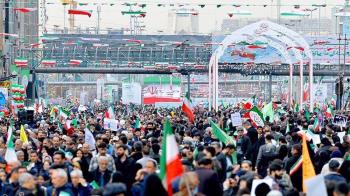Alwaght- Some 80% of Saudi children sentenced to death for crimes still face execution, an international human rights organization said, dismissing Saudi authorities’ announcement that the ultra-conservative kingdom will no longer use death penalty against people below the age of 18 at the time of the crime.
Last year, Saudi Arabia’s state-backed Human Rights Commission (HRC), citing a royal decree by King Salman, said in a statement that the kingdom will no longer impose the death sentence on individuals who committed crimes while still minors.
The announcement came just two days after the kingdom in effect scrapped the punishment of flogging, in a decision by the General Commission for the Supreme Court.
The most high-profile instance of flogging in recent years was the case of Saudi blogger Raif Badawi, who was sentenced to 10 years in prison and 1,000 lashes in 2014 over criticizing influential clerics who preach Wahhabism in the country.
Wahhabism is the radical ideology dominating Saudi Arabia, and is freely preached by government-backed clerics there, and inspiring terrorists worldwide. Daesh and other Takfiri terror groups use the ideology to declare people of other faiths as “infidels” and then kill them.
The so-called Saudi Human Rights Commission, however, told Reuters in February that the decree to revoke death sentences for minors does not apply to all types of crimes, and the ban only applies to a lesser category of offense under Sharia law known as “ta’zeer.”
This means Saudi judges can therefore still sentence child offenders to death under the other two major types of punishments: “hudud” or harsher punishment for serious crimes that carry a prescribed punishment like terrorism, and “qisas”, or retribution, usually for murder.
Anti-death penalty group Reprieve said on Friday that 10 people are currently at risk of execution in Saudi Arabia, of whom seven have been convicted of hudud offences and one of qisas. The royal decree’s protections would only cover two of the detainees.
Saudi authorities have arrested dozens of activists, bloggers, intellectuals and others perceived as political opponents ever since bin Salman became the kingdom’s de facto leader in 2017, showing almost zero tolerance for dissent even in the face of international condemnations of the crackdown.
Saudi officials have stepped up politically-motivated arrests, prosecution and conviction of peaceful dissidents particularly in Eastern Province, which has been the scene of peaceful demonstrations since February 2011, with protesters demanding reforms, freedom of expression, the release of political prisoners, and an end to economic and religious discrimination against the oil-rich region.
The protests have been met with a heavy-handed crackdown, with regime forces increasing security measures across the province.



























